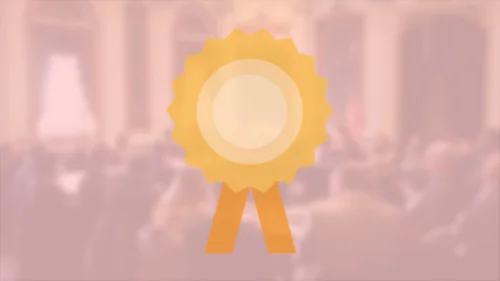Engine submitted comments to the Senate Judiciary Subcommittee on Intellectual Property following the Subcommittee’s October 30th hearing to consider what Congress can do to prevent the issuance of low-quality patents.
Engine's statement on House passage of CASE Act
The House’s vote in favor of the CASE Act is disappointing, particularly because there were no hearings or debates in the lower chamber to discuss the many flaws in this legislation. The bill is purportedly designed to protect small copyright holders by establishing an extra-judicial Copyright Claims Board within the U.S. Copyright Office to adjudicate infringement claims outside of a federal court setting. However, without the traditional safeguards of the federal courts, this newly established tribunal would have the authority to grant substantial financial damage awards — up to $30,000 per proceeding — to potentially abusive parties looking to strong-arm settlements from unsuspecting companies and online users.
San Francisco-based tech companies express concerns with CASE Act
Five San Francisco-based tech companies sent a letter to Speaker of the House Nancy Pelosi (D-Calif.) and Senators Diane Feinstein (D-Calif.) and Kamala Harris (D-Calif.) today, expressing “significant concerns” with the CASE Act. The proposed bill would create an extra-judicial board within the U.S. Copyright Office to adjudicate copyright infringement claims outside the traditional safeguards of federal court.
Statement on Mozilla v. FCC Decision
“Today’s DC Circuit Court decision is disappointing, particularly because the court, like the FCC, failed to take seriously the reliance interests of startups, entrepreneurs, and investors on the FCC’s enforcement of net neutrality protections. The startup ecosystem has grown over the past decade precisely because of the FCC’s long history of using its authority to stop abusive ISP practices—authority the current FCC has now abandoned.”
Engine submits comments to USPTO on proposed fee increases
Engine submitted comments to the U.S. Patent and Trademark Office in response to the agency’s proposed rule regarding Setting and Adjusting Patent Fees During Fiscal Year 2020. The USPTO’s proposal would “set or adjust patent fees as authorized by the Leahy-Smith America Invents Act (Act or AIA), as amended by the Study of Underrepresented Classes Chasing Engineering and Science Success Act of 2018 (SUCCESS Act).”
Engine submits comments to Senate Judiciary IP Subcommittee on STRONGER Patents Act
Engine has submitted comments to the Senate Judiciary Subcommittee on Intellectual Property following the panel’s Sept. 11 hearing on the Support Technology and Research for Our Nation’s Growth and Economic Resilience (“STRONGER”) Patents Act of 2019. Among other concerns, the proposed legislation would limit the availability of inter partes review (IPR) as a mechanism for improving patent quality.
Lawmakers, entrepreneurs share Congressional Startup Day experiences
CASE Act does not offer viable solution to online infringement
The Senate Judiciary Committee is taking up a bill today that would change copyright enforcement in the U.S. and open up startups and their users to new risks. The bill, the CASE Act (S.1273), would create a process for copyright holders to address online copyright infringement by establishing a Copyright Claims Board within the U.S. Copyright Office to adjudicate copyright infringement and award substantial financial damages without the traditional safeguards of federal court.
Engine Submits Comments on Section 101 to Senate Judiciary Subcommittee
The Subcommittee on Intellectual Property of the Senate Judiciary Committee recently held a series of hearings on the topic of patent subject matter eligibility. That Subcommittee is considering potential amendments to 35 U.S.C. §101—the provision of the Patent Act that defines what subject matter is (and is not) eligible for patent protection. In our view changes to 35 U.S.C. §101 are not needed, and we submitted comments to the Subcommittee articulating our concerns.
Statement on the Ending Support for Internet Censorship Act
Startups push Senate to support net neutrality
This morning, on the one-year anniversary of the repeal of net neutrality, Engine released a letter signed by over 160 startups in support of H.R. 1644 / S. 682, the Save the Internet Act.
Looking Back on National Small Business Week 2019
Last week, communities all across the country celebrated the 56th annual National Small Business Week (NSBW). With 30.2 million startups and small businesses across the United States employing 47.5 percent of the country’s private workforce, entrepreneurial endeavors represent the economic backbone of our country. That’s why policymakers from across the aisle strongly support small business innovation and growth across their districts and states.
Engine Supports AI in Government Act
Engine Files Amicus Brief in HomeAway vs. City of Santa Monica
Statement on Introduction of the CASE Act
Engine Joins Brief in Copyright Case
Engine has joined an amicus brief urging the U.S. Supreme Court to review State of Georgia v. Public.Resource.Org Inc., which will determine the extent to which a state may exclude citizens from government works under copyright law.
Engine Supports Token Taxonomy Act
Statement on House Passage of the Save the Internet Act
“We are pleased that House lawmakers voted to advance H.R. 1644, the Save the Internet Act, a bill that would fully restore the strong net neutrality protections that were enshrined in the FCC’s 2015 Open Internet Order. Net neutrality helps preserve the Internet as a level playing field for companies of all sizes, promoting competition and innovation.”
Startups speak out as net neutrality bill advances
This afternoon, Engine released a letter signed by over 120 startups in support of H.R. 1644, the Save the Internet Act. The legislation would restore the FCC’s 2015 Open Internet Order, which allowed startups to grow and succeed by keeping the Internet a level playing field.















